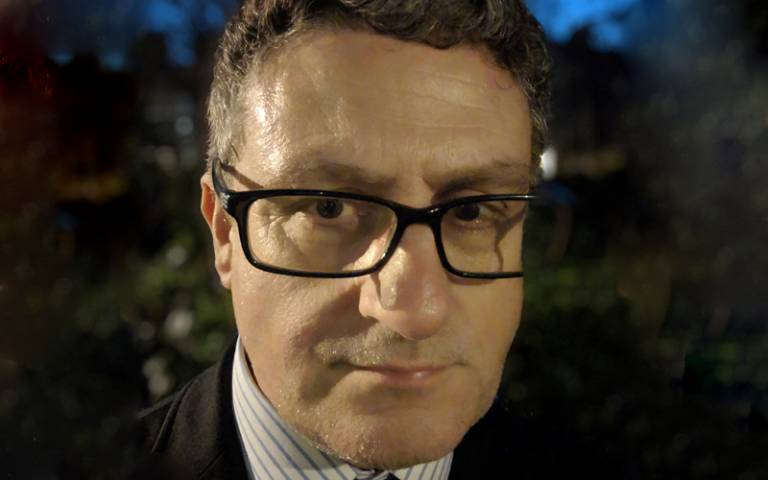Opinion: Russia’s best and brightest are fleeing Putin
24 March 2022
The Russians with the most talent, resources and skills are heading overseas while they still can, says Professor Mark Galeotti (UCL School of Slavonic & East European Studies).

News that Putin’s climate envoy Anatoly Chubais has quit his position and left the country is no great surprise and, to many Russians, not that great a loss. However his departure is still significant as it illustrates a growing haemorrhage of the talents in the wake of Putin's invasion of Ukraine. Those Russians with the resources and, above all, skills to make it abroad are fleeing while they can.
Chubais himself is still remembered by most Russians as one of the so-called ‘boys in pink shorts’ under former finance minister Yegor Gaidar. These men were responsible for implementing the ‘shock therapy’ transition to the market in the 1990s that left most Russians impoverished, while a handful became ultra-rich oligarchs.
Chubais, who is from St Petersburg, is also thought to have been behind fellow Peterburger Vladimir Putin getting a job in Moscow with the presidential property management agency when he lost his position as deputy mayor in 1996. This really gave Putin’s career the acceleration it needed to eventually take him to the presidency. Tatyana Yumasheva, daughter of former president Boris Yeltsin, claimed that Chubais later opposed the idea of making Putin prime minister and presidential heir-apparent in 1999, on practical political grounds – he didn’t think he would get parliamentary approval – rather than because he didn’t believe Putin was up to the job.
Whatever else one may say about him, Putin does reward loyalty, and he certainly seems to have regarded Chubais with favour. Between 1998-2008, Chubais headed the state-owned electrical power monopoly RAO UES. He was then appointed to head Rosnano, the Russian nanotechnology corporation, at a time when the Kremlin was prioritising this field of research. In 2020, he was dismissed following concerns about waste and a lack of progress. Despite this Putin found an honorific sinecure for Chubais, making him special presidential envoy for relations with international organisations relating to sustainable development.
Nonetheless, this liberal economist and successful business manager was clearly increasingly out of step with Putin as he became steadily more authoritarian and belligerent. Last week, Chubais posted a coded critique on Facebook in a post commemorating Gaidar’s death in 2009. Chubais mournfully said it seemed ‘an entire era’ since then, and admitted that he had not understood the ‘strategic risks’ facing Russia.
Quite what – or who – posed those risks became clear when, yesterday, he resigned his position and reportedly left Russia for Turkey. He is the most senior and Russian figure to leave his position because of the war so far. For better or worse, Chubais is certainly more widely known than former Kremlin aide and deputy prime minister Arkady Dvorkovich, who last week was forced to step down as chair of the Skolkovo Foundation, a high-tech start-up incubator, after criticising the war.
In itself, Chubais’s departure is no great blow to Putin. However, this matters because in Turkey, he will be joining a growing diaspora of Russia’s talents. They are heading to Istanbul and Riga, Tbilisi and Yerevan – or indeed wherever they can get to in an age when Russians are suddenly becoming persona non grata and flights are limited, few and far between.
One estimate is that more than 200,000 Russians have fled so far. Even though this is likely to be on the lower end of the scale, that looks scarcely much more than a rounding error in a population of 144 million. However, to a disproportionate degree, these are younger professionals, with the skills to be portable and the assets to buy one of the now-extortionately expensive tickets out. Computer programmers, teachers, designers, doctors, entrepreneurs, data scientists, architects: the skillset of those leaving Russia is often impressive.
Some of these people, for now, at least, will end up driving taxis, cleaning offices and delivering pizzas. It won't be long before they come to represent an invaluable resource to their new home countries in an age of skill-scarcity – something the UK should also remember. But the West's gain will come at the expense of Russia.
There have been many Russian diasporas, some voluntary, some enforced. The departure of a 66-year-old millionaire like Chubais is perhaps politically-embarrassing, but the loss of tens of thousands, ultimately perhaps hundreds of thousands of Russia’s best and brightest will be another of Putin’s many toxic legacies to his country.
This article was first published in The Spectator on 24th March 2022.
Links
-Original article in The Spectator
- Professor Mark Galeotti’s academic profile
- UCL School of Slavonic & East European Studies
- UCL Social & Historical Sciences
 Close
Close

